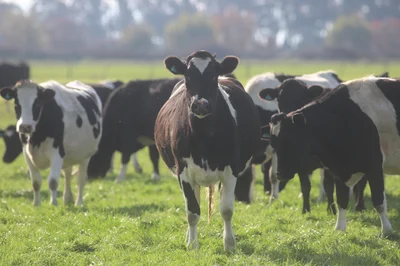Selwyn setback for bovis eradication

New Zealand's ambitious campaign to eradicate Mycoplasma bovis has had a setback with a farm in Selwyn testing positive for the cattle disease.
The latest infection was identified through standard milk screening and comes less than two months after New Zealand hit a M.bovis-free milestone.
Mid Canterbury Federated Farmers dairy chair Nick Giera said the new case was disappointing but it wasn't unexpected.
He said it was tough for affected farmers and Federated Farmers and the Rural Support Trust had a role to support those farmers.
"The industry needs to realistic. There may be isolated cases but it doesn't derail the objective of eradication."
Giera said farmers can't be complacent and need to be vigilant about biosecurity and traceability.
Biosecurity New Zealand deputy director-general Stuart Anderson said a new infection was not surprising.
"We expected to identify more infected properties during spring testing - and it does not undermine our progress toward eradication."
Anderson said the ST-21 infection was the strain originally detected in 2017.
The M.Bovis Eradication Programme was working with the farmer to cull the cattle and trace animal movements on and off the farm, as was the usual practice.
The likely source of the infection - and any other farms it may have moved to - would be identified by tracing the movement of cattle and the number of local farms under movement restrictions would increase, he said.
MYCOPLASMA BOVIS FACTS
The disease was first discovered in New Zealand in July 2017 on a farm in South Canterbury.
New Zealand embarked on an ambitious programme to eradicate M.bovis in 2018, funded by the Government (68%), Dairy NZ and Beef + Lamb New Zealand.
Since then, more than 186,421 cattle have been culled from 280 farms.
The last known infected property near Ashburton was cleared of the disease early in August.
A total of 2909 claims have been processed and paid, while six are in process. More than $256m has been paid in claims so far.
At the peak of the infection there were up to 40 infected properties across the country.
by Sharon Davis

